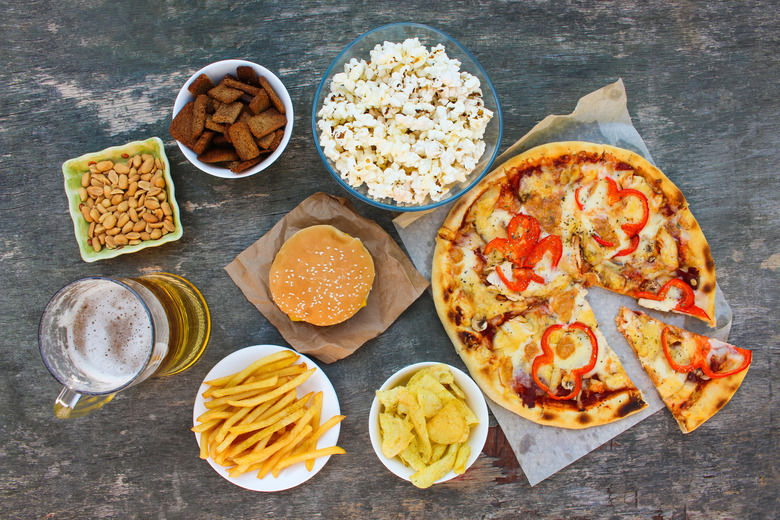Junk Food Is Worth More Money When You Crave It, Study Finds
New research from New York University shows that junk food cravings pose a risk to your wallet, as well as your health. The results indicated that people are willing to pay more for the foods they crave, regardless of hunger — and that the amount people were willing to pay multiplied when they were offered a bigger portion.
Study participants were offered a series of snacks under various conditions and asked how much they would be willing to pay for them. The participants were offered foods typically thought of as "junk" such as Snicker's bars, cheese puffs, soda; they were also offered foods considered to be "healthier" snacks, like granola bars and pretzels.
One group of participants was first shown images of the foods and asked to recall memories of eating them. Reminiscing of chocolate and Cheetos, many participants began to experience cravings. If they didn't crave the food yet, they were certainly about to — after viewing the images, they were presented with a tray of the food and told to do anything they wanted to it but eat it. They could pick it up, smell it, or chop it into tiny pieces — as long as they didn't take a bite.
After the food tease was over, participants were told to make a bid. Their offers increased by an average of 66 cents, or 38 percent, after their craving increased. Their increased willingness to pay more wasn't specific to a single food, either — they also offered an average of 26 cents more for those junk foods most similar to the ones they'd been primed to crave.
In a second test, the researchers manipulated portions. They crafted the same craving craze and then offered the same foods — only now, the option for a bigger portion was on the table. Bids multiplied for larger portions of junk foods, implying that these foods became exponentially valuable.
For nutritious snack options, however, bids based on portions remained unchanged. The value of healthy snack foods did not increase when supersized. McDonald's may have been onto something, after all — you've never seen a super-sized granola parfait on their menu.
"Our results indicate that even if people strive to eat healthier, cravings could overshadow the importance of health by boosting the value of tempting, unhealthy foods relative to healthier options," explained Anna Konova, lead author of the study, in a news release from NYU. People craved larger portions of junk food but didn't crave larger portions of health food.
Why aren't these nutritious foods considered as valuable?
"Cravings are powerful, and can make a person value a food more," Jackie Arnett Elnahar, registered dietitian and CEO of TelaDietitian, explained to The Daily Meal, "since it not only may fulfill a hunger need, but also a psychological need for satisfaction."
The study's results imply that cravings don't always relate specifically to hunger. "There is a different driver for cravings, and it usually stems from an emotional and mental need," Elnahar expressed. "A moderate approach where you feel satisfied in both nutrition and taste is important."
When people try to curb their cravings entirely, they often end up unsuccessful. A person who says no to a craving for a handful of potato chips early on could later find themselves face-down at the bottom of a whole bag.
"This is exactly why strict diets do not work," said Elnahar, "since it makes such cravings that much more enticing and foods that much more valuable to obtain."
Cravings don't always come from psychology, however. Depending on the food, there could be something biological going on that's making you crave those seemingly random foods.
